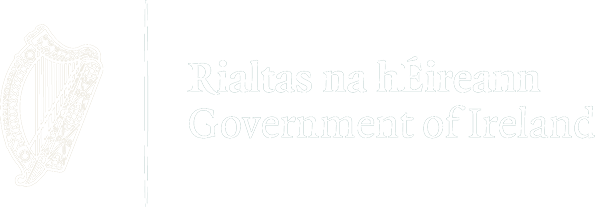Policy/Commitment Statement
MSLETB is a dynamic education provider affording its learners a positive learning experience in a professional, caring and collaborative education and training environment. Active inclusion is an MSLETB priority which is supported by the overall education and training policy and includes a universal design approach to underpin its teaching and learning strategies. The priority for MSLETB is to enable all learners from a variety of backgrounds to fully participate and access a range of quality FET services. The provision of services to support learners reflects the diversity of the student body and the specific needs of individuals and groups. MSLETB is cognisant of the many challenges these learners can face and will commit to acquainting the learner with the details of all supports available at induction and throughout the duration of their studies. Learners and prospective learners will be made aware of the supports available to them while on MSLETB FET courses.
This policy supports the principle that MSLETB will foster a supportive environment ensuring that adequate and readily accessible learning resources are available to ensure learners so they can reach their educational potential. It also commits to the wellbeing and integration of learners across all centres of education within the regions.
It is a college-wide responsibility to promote the health, wellbeing, progression and success of all learners within MSLETB. The Learner Support Coordinator takes the lead role in ensuring appropriate and fit for purpose supports are in place. They undertake annual monitoring of support services and presents a report to the FET Quality Council detailing the take up of services and proposing further enhancements to ensure an environment conducive to learning exists across all centres of education and training in MSLETB.
Availability of Resources and Signposting
Prior to commencement of their programme of study, information about MSLETB, the centre and the programme will be available to learners through:
- MSLETB website – MSLETB
- Industry Partners (if relevant)
- Participating employer and professional body websites (if relevant)
- An MSLETB or relevant centre brochure information brochure targeting learners
- MSLETB Centre webpage with Programme Details
- The FETCH Course Directory www.fetchcourses.ie
- Various social media channels
A series of induction events are arranged at the commencement of each programme. A general induction is arranged to introduce centre facilities, processes and procedures, followed by programme specific induction arranged by the Programme Coordinator. During induction, learners are directed by the Programme Coordinator to where to find relevant processes and procedures relating to the centre. Induction is designed not only to facilitate exchange of information but to provide a welcoming atmosphere, provide learners with the opportunity to familiarise themselves with their surroundings and their peers. This process allows an opportunity for the learner to disclose any additional needs or concern.
Premises
Teaching venues must satisfy the minimum standards for location, space, layout, lighting, facilities and satisfy any additional specific requirements as recorded in the programme validation document.
LEARNER RESOURCES & SUPPORTS
MSLETB requires all learners to commit to their programmes of studies through attendance to classes, participation in class, and engagement with their assessment activities. MSLETB will support this through its commitment to the provision of adequate and appropriate academic supports to learners to facilitate them completing their studies to the best of their ability. MSLETB fosters a culture of interaction between staff and learners, and this is actively promoted at all levels within each centre.
Staff Supports for Learners
MSLETB recognises that supports are required in order to facilitate the learners’ experience. Support is largely facilitated through staff members but can also be arranged through the learner contacting the Programme Coordinator or Learner Supports Coordinator.
- Staff assist learners from a diverse range educational and cultural backgrounds – they guide, clarify, facilitate and support to ensure learners meet programme assessment requirements.
- One of the main responsibilities of a staff member is to provide support to learners on the programme. The purpose of academic support is to offer learners advice and help regarding any general or subject specific academic challenges they may experience during their studies. Appointments with staff members are sometimes necessary in busy periods (for example: assessment submission dates or exam times), otherwise and normally, learners can get support whenever they wish.
- Staff can often identify where a learner may benefit from academic support. It is the responsibility of staff to highlight to the Programme Coordinator any learner who may fall into this category. Indicators may include, but are not limited to, low level attendance or class participation, under performance in assessment, late or non-submission of assessments or academic malpractice. In particular, any learner that shows a decline in their engagement, interaction, or performance should be highlighted. The learner can also communicate to the programme team when they feel they require additional academic support. In such cases they should approach the most suitable member of staff or the Programme Coordinator to express this and make arrangements. Learners are advised of this at induction and regularly throughout their studies.
Pastoral Support Services
Pastoral care can be defined as the range of learner supports and services that are provided for learners’ emotional, psychological and spiritual wellbeing. All learners are encouraged to attend an induction session, where they meet with the programme team who outline their individual roles and responsibilities. The Programme Coordinator emphasises the support services available to all learners and where to find these supports if needed.
Reasonable Accommodation in Assessment
In the context of assessment, reasonable accommodation refers to the necessary adaptations made to ensure fair assessment for learners whose personal circumstances might otherwise result in unfair assessment conditions, such as those with disabilities.
Special accommodations will be provided in a fair and impartial manner, ensuring no advantage or disadvantage to any learner.
If a learner requires Reasonable Accommodation in Assessment, they should notify their FET centre as soon as possible (e.g., their teacher, tutor, trainer, principal, etc.) and submit a written application form. Learners must provide evidence of their need for reasonable accommodation, which could include:
- Medical report
- Educational psychologist report
- Occupational therapist report
- Guidance counsellor report
Learners should consult with the staff at their FET centre for further guidance.
The needs of the learner will be addressed as far as is practicably possible.
If reasonable accommodation is not granted, the learner has the right to appeal the decision in writing.
Learner Representation
This policy outlines the commitment by MSLETB to ensure that that every learner at every level of every programme will have access to representation, and as a result, will be able to influence their learning experience through their representatives. It is based on MSLETB’s responsibility for promoting an environment which empowers the learner voice. MSLETB endeavours to have learner representation on its Board, individual boards of management (centre level) and within the FET Quality Governance structures.
For the purposes of this policy, ‘Representation’ is defined as those formal processes and structures that:
- Allow the learner voice to be represented effectively at all levels of MSLETB for the purposes of enhancing programmes of study and improving the student learning experience.
- Provide a mechanism for feeding back the outcomes of this representation
Class Representatives
Class representatives are democratically selected by the learner group and in agreement with Programme Coordinator. The term of office for class representatives is for the duration of the academic year. Practical aspects of the class representative role involve:
- Acting as a point of contact and hub for communications between MSLETB and learners and are expected to take a coordination role in this regard.
- Represent the learners’ views to MSLETB and to communicate these views in a professional manner
- Support the development of the social aspects within the group which might include arranging social events for special occasions as deemed appropriate.
Roles and Responsibilities of Class Representatives
- Be an ambassador for MSLETB
- Represent the class at academic and social events
- Facilitate class representative meetings at intervals to communicate MSLETB matters where appropriate and to garner feedback from learners to communicate back to MSLETB
- Liaise with MSLETB staff to resolve relevant concerns and to maximise the positive aspects of the College
- Participate on boards and committees if required (ie FET Quality Council, New Apprenticeship National Programme Board)
MSLETB Adult Educational Guidance Service
MSLETB Adult Educational Guidance Service helps people to make informed education, career and life choices by providing impartial and confidential Guidance Counselling, Information and Support to adults in relation to their education, training and career options.
Learners or prospective learners can meet with a professional Adult Educational Guidance Counsellor or Adult Guidance Information Officer in a confidential setting to discuss their education and training needs.



